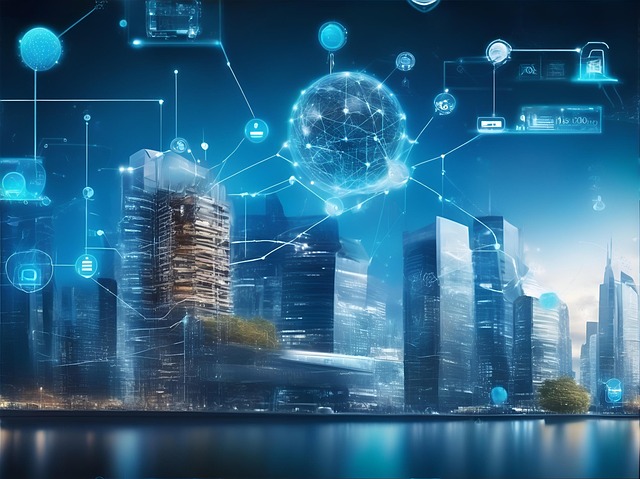AI is revolutionizing the hospitality industry by transforming seafood restaurants into eco-friendly havens. Through advanced technology, these restaurants achieve energy efficiency, cost savings, and environmental consciousness. AI sustainability reporting tracks fishing activities, ensuring suppliers adhere to eco-standards, while predictive algorithms minimize overfishing and optimize harvesting. This innovative approach not only reduces the carbon footprint but also promotes transparency, attracting environmentally conscious consumers. By integrating AI into cooking systems and supply chain management, these restaurants set a new sustainable standard for the industry, contributing to global environmental goals.
“Welcome to the future of culinary innovation, where Artificial Intelligence (AI) meets sustainable seafood. This article explores how AI is transforming the restaurant industry with energy-efficient cooking systems. From monitoring fish supplier practices through AI sustainability reporting to revolutionizing gastronomy, these advanced technologies are reshaping our dining experiences. Discover how AI promises a greener kitchen, ensuring a delicious and eco-conscious future for seafood lovers worldwide.”
- AI Seafood Restaurant: Revolutionizing Energy-Efficient Cooking
- Sustainable Practices: AI in Fish Supplier Monitoring and Reporting
- The Future of Gastronomy: Integrating AI for Environmental Conservation
AI Seafood Restaurant: Revolutionizing Energy-Efficient Cooking

In the ever-evolving landscape of hospitality, AI seafood restaurants are emerging as pioneers in energy-efficient cooking systems, setting a new standard for sustainability. These innovative eateries leverage advanced artificial intelligence technologies to optimize culinary processes, ensuring not only delicious meals but also significant energy and cost savings. By integrating AI with sustainable practices, these restaurants are revolutionizing the industry, attracting environmentally conscious diners.
AI sustainability reporting for fish suppliers plays a pivotal role in this transformation. Through intelligent data analysis, these establishments can track and monitor their supply chain’s environmental impact. This enables them to make informed decisions, choose eco-friendly ingredients, and ensure responsible sourcing. As a result, AI seafood restaurants are not just cooking with precision but also contributing to a greener planet, setting an example for the future of culinary excellence.
Sustainable Practices: AI in Fish Supplier Monitoring and Reporting

The integration of AI in seafood restaurants brings a paradigm shift towards sustainable practices, starting from the source—fish suppliers. AI sustainability reporting for fish suppliers is revolutionizing the industry by enabling efficient monitoring and tracking of fishing activities. This advanced technology ensures that every step of the supply chain adheres to eco-friendly standards, promoting responsible fishing methods. With real-time data analysis, AI systems can identify sustainable practices and flag any deviations, allowing quick corrective actions.
By leveraging machine learning algorithms, these systems can detect patterns in fish populations, predict overfishing hotspots, and optimize harvesting techniques. This proactive approach not only conserves marine ecosystems but also ensures a consistent, high-quality supply of seafood for the restaurant. Moreover, AI reporting provides transparency in the supply chain, fostering trust among consumers who increasingly demand environmentally conscious businesses.
The Future of Gastronomy: Integrating AI for Environmental Conservation

The future of gastronomy lies not only in taste and texture but also in environmental stewardship. Integrating Artificial Intelligence (AI) into cooking systems offers a revolutionary approach to reducing the carbon footprint of seafood restaurants, aligning with global sustainability goals. AI can optimize energy usage by precisely controlling cooking temperatures and times, minimizing waste, and maximizing resource efficiency.
Moreover, AI sustainability reporting for fish suppliers becomes an integral part of this equation. By analyzing data on sourcing, processing, and transportation, AI algorithms can identify inefficiencies and promote responsible fishing practices. This ensures that the seafood served in these restaurants not only tastes exquisite but also contributes to a greener planet, creating a harmonious synergy between culinary innovation and environmental conservation.
AI is not only transforming the way we cook but also pioneering sustainable practices in the seafood industry. By leveraging AI for monitoring and reporting on fish supplier operations, restaurants can ensure ethical sourcing and reduce environmental impact. As we look to the future, integrating AI into gastronomy holds immense potential for conservation efforts, paving the way for a more sustainable and responsible culinary landscape. Additionally, energy-efficient cooking systems powered by AI promise to make seafood dining not only delicious but also eco-friendly.
